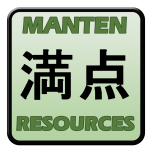Are you looking for some fresh inspiration for your assessment schedule? Hoping to embed popular theories in pedagogy such as task-based learning in your tasks? Thinking of using assessment as an advocacy tool to grow your presence in the school? Looking for ideas when creating marking schemes? The following resources may be the inspiration you need, to meet these goals and others.
Year 7/8 Japanese Investment Expo
Australia is well known internationally for its agricultural success. We are a popular country for trade and investment due to our political and economic stability, our natural resources, safe and ethical practices and high level of research and development.
This assessment is a group task that will develop skills in collaboration, project management and creativity. It centres on the election of a new mayor to the town who is keen to increase the town’s profile by establishing a Japanese sister city relationship. They also hope to attract Japanese investment into local agricultural businesses to expand production and increase employment.
This task requires students to analyse details from a Japanese text, use hiragana and katakana tables to categorise export products and produce a bilingual video promoting their chosen agricultural industry using simple language and the scaffold provided. An optional extra would be to hold the “Expo” during a visit by Japanese students. The local students could share their videos at small stands and attempt to lure the students to invest in their product using the (fake) investment yen distributed by the teacher to each visitor.
Year 9/10 Formative Task – The Platform
The Platform is a formative assessment tool pitched at Year 9 and 10 students. The Platform aims to create a temptation bundle where students become a member of a small group (2-4 students) to share videos that have interested them. They must write a minimum of 30 characters about each video and other members of the group must respond to at least one post per week. Unlike regular tasks though, the students are rewarded for the quantity of writing they do, rather than the quality. We want them to experiment with language here, to focus on communicating with others for a real purpose and to practice regularly vocabulary, grammar and script recognition.
The second version of this task is a whole class task where students share comments in a central book and online space about the videoclips or images that the teacher has identified for discussion. These comments are numbered, and a raffle is held each learning cycle to share small rewards eg comment 21 wins a Japanese lolly or gets to sit in the tatami space or choose who to sit next to for that week.
This task focuses on writing and reading skills whilst improving the learning culture and growth mindset of the class cohort.
Year 9/10 Values Task
The task takes students through identifying their own values, exploring the profiles and life experience timelines of famous Aboriginal and Torres Strait Islander role models. They will develop vocabulary resources related to these profiles, use the resources to read Japanese texts about these people and analyse how these people match the identified values of international companies such as Honda. Students will then focus on the identified Japanese values of ゆうき、がまん、きょうりょく、and どりょく to create a mixed media presentation endorsing 4 possible candidates. This task focuses on reading, writing and speaking skills and includes formative and summative assessment opportunities throughout.
The Stage 5 (Year 9/10) Formative Assessment Writing Resource
The Stage 5 Formative Assessment Writing Resource is professional development for your department and a student assessment task all rolled into one. This resource provides you with everything you need to run the task plus a summary of the evidence-based research that contributed to its design. You will learn how to facilitate the task and why each step is relevant to the learning process.
This task develops writing skills in Japanese through structured peer-feedback and self-reflection tasks. It also develops teacher confidence in providing student-centred growth mindset based feedback.
The Year 11 Beginners Task A: Japanese Homestay Preparation
This task focuses on listening and writing skills at the beginning of the Year 11 course. Students imagine that they are Alex, a year 11 student about to go to Japan later this year. They receive a video clip from the homestay family they are going to be hosted by. They need to work out the gist of the videoclip and specific information in order to write a letter to the host family in Japanese.
The Year 11 Beginners Task B: Japanese Language Camp
This task focuses on reading and speaking skills. Students imagine they have signed up for a two-day language immersion camp in the school holidays for students studying Japanese. They are attending the orientation day and need to work out the gist and specific information in the orientation package, before being interviewed in Japanese about their selections by the camp support staff.
